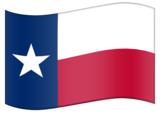Waylon Jennings, a well-known purveyor of the outlaw country scene in the 1960s and 70s, was known as the ‘Nashville Rebel.” Born in a small town outside Lubbock, he exemplifies the true Texas outlaw spirit, and his music shows this. Songs like “Mammas Don’t Let Your Babies Grow up to Be Cowboys,” “Lonesome, On’ry and Mean,” and “Luckenbach, Texas” showcase his stripped-down, honest sound that made him such an iconic figure in country music.
His songs draw a lot of influence from the honky-tonk sound of the 1950s, coupling themes of heartbreak, alcoholism, and self-pity with steel guitars and a strong rhythmic section. He is credited as being one of the creators of outlaw country, a genre characterized by its rough, rock & roll and blues-inspired sound. It’s a direct response to the hyper-produced, slick country being made in Nashville in the 1960s and 70s, and musicians like Jennings helped gain a wider audience for country music through its creation.
He began his career as a more clean-cut, traditional country artist in the 1950s, originally working as a DJ for a local radio station in Lubbock creating jingles and appearing in public performances to promote the station.

He got his big break when fellow Lubbock native Buddy Holly discovered him, and Jennings was in his band The Crickets for a short period of time. He performed with them on their final tour, before the plane crash on February 3rd, 1959, known as ‘The Day the Music Died.’ Jennings was supposed to be on that plane, but he had given up his seat and elected to ride in a tour bus instead. Many big names in rock and roll and country music were on that plane, including Buddy Holly and the rest of his band. He spent years mourning the loss of the people on that plane and admitted that he felt partially responsible for the fate of the flight.
His time in Texas at the start of his career was brief, and two years after the plane crash, he moved to Phoenix, Arizona, and formed a band called The Waylors. He saw great regional success with them and was scouted by RCA after a move to Nashville in 1965.
In Nashville, he discovered that the country music scene there was unabashedly run as a business. He disapproved of the hyper-produced, cookie-cutter country music being made at the time and fought to keep his signature stripped-down sound. His frustration with the way the Nashville music scene was run continued throughout his entire career, and he was constantly battling with record executives that wanted him to conform to the standards of the genre. In the interview below from the US Festival in 1983, he almost immediately brings up his distaste for how country music was being produced.
His attitude toward the Nashville scene was almost fated, and his nickname of ‘Nashville Rebel’ actually stemmed from a 1966 film of the same name that he starred in. It was prophetic for him, as he built his entire career off going against the grain.

Because he was so influential, he was able to have leverage with record labels later on in his career, and, along with other iconic outlaw country artists like Kris Kristofferson, Merle Haggard, and his long-time collaborator and fellow Texas native Willie Nelson, he paved a way for a completely new sound in country music. They all strived to escape the formulaic nature of the genre during the 1960s and 1970s and paved the way for wider acceptance and popularity of country music across the United States.
In an interview with Billboard in 1998 celebrating the release of his 73rd album, he keeps the same attitude about the music industry that he had throughout his entire career.
“Look, I don’t want nobody messing with me. What I want to do is what I want to do. I want to cut things that are fun and not worry about radio. I ain’t worried about them.”
Billboard, 1998
Miles Copeland, the owner of Ark 21, which was the record label Jennings was signed to at the time, even agrees with him, saying that because he is such a legendary music figure, his label can essentially market him as anything he wants. Waylon Jennings’ influence on American popular music continues on even now, almost 20 years after his death in 2002, and forever changed country music.

Sources:
Caillavet, Christopher. “Waylon Jennings’ Country Rise.” Investor’s Business Daily, Jan 17, 2008. ProQuest, www.proquest.com/newspapers/waylon-jennings-country-rise/docview/1033567509/se-2?accountid=8117.
“Outlaw Music.” Encyclopædia Britannica, Encyclopædia Britannica, Inc., www.britannica.com/art/outlaw-music. www.britannica.com/art/outlaw-music
Cusic, Don. “Nashville Recording Industry.” Tennessee Encyclopedia, Tennessee Historical Society, 1 Mar. 2018, tennesseeencyclopedia.net/entries/nashville-recording-industry/.
“Jennings, Waylon (1937–2002).” TSHA, www.tshaonline.org/handbook/entries/jennings-waylon.
“The Waylors.” Discogs, www.discogs.com/artist/892286-The-Waylors.

